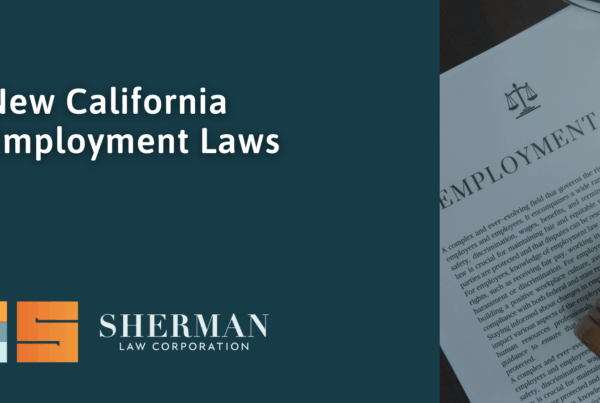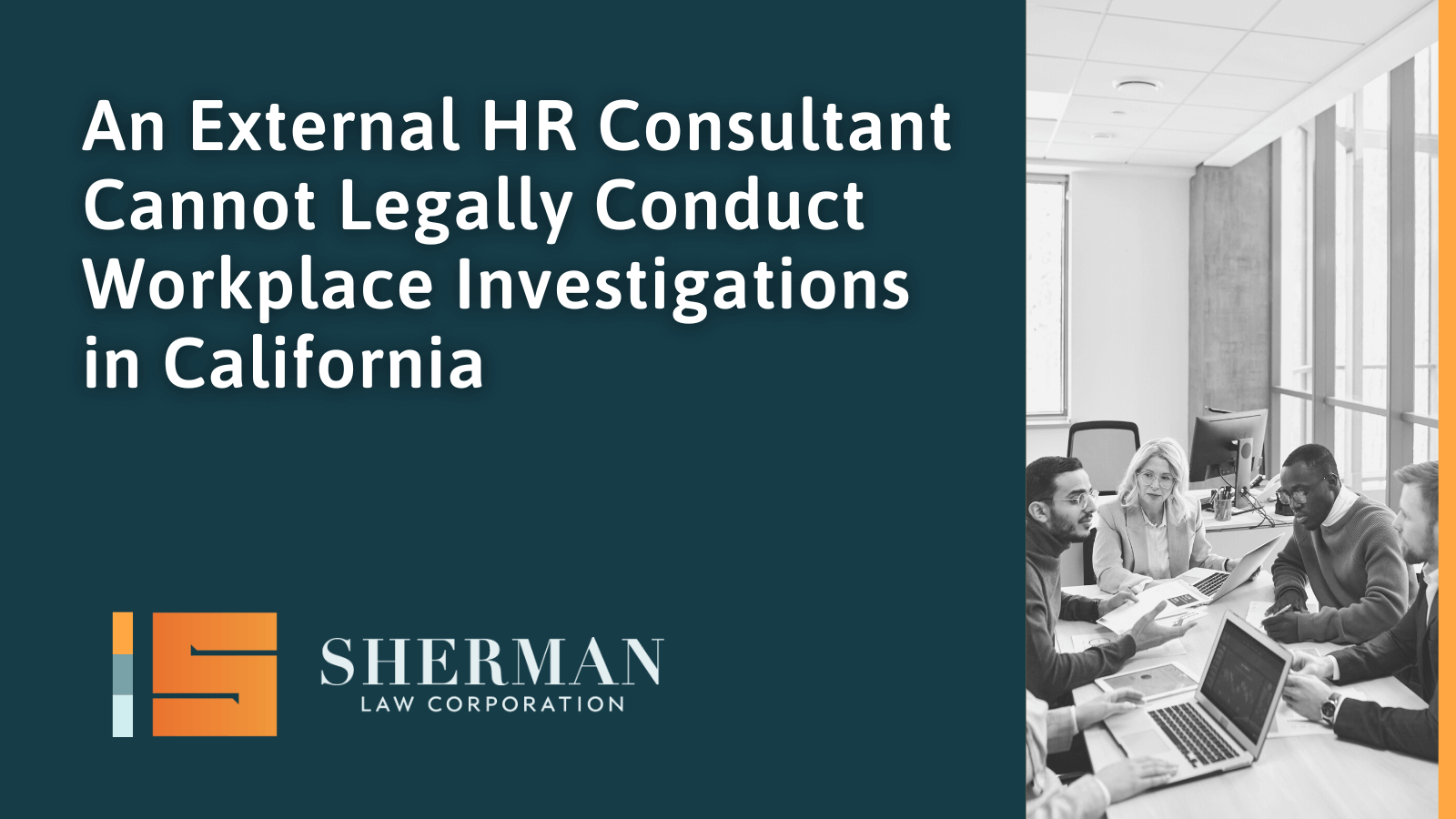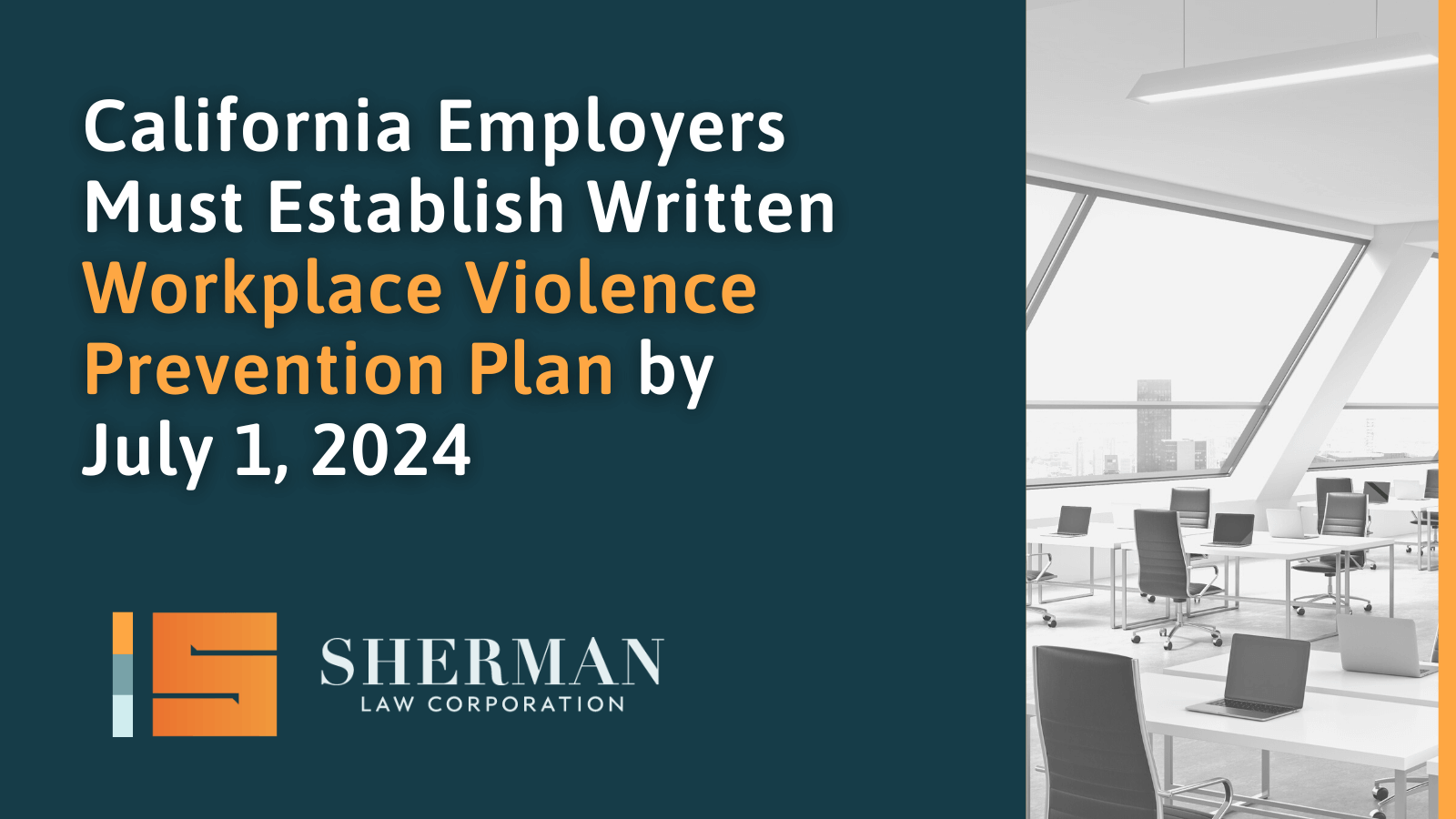Former employees from Miramax and The Weinstein Company reported to the New Yorker Magazine on October 19, 2017 that Harvey Weinstein engaged in extremely abusive conduct towards them in the workplace that included such things as, belittling an employee by calling him a f*cking moron,” erupting in tantrums in which he threw shoes, books, phones, and even framed pictures, across the room, berating employees saying such things as, “You can’t name three Frank Capra movies? What the f*ck are you even doing here?” These employees were not only beaten into submission, they refer to themselves as “survivors” in the same way those who beat cancer or other tragic events do.
Yet, “abusive conduct” or bullying alone is not unlawful in California. Since 2005, California employers with fifty or more employees have been required to conduct mandatory sexual harassment training to their supervisors every other year. Starting January 1, 2015, the California Legislature signed Assembly Bill 2053 expanded training to include “abusive conduct” and “prevention of abusive conduct” only. Unless the severe or pervasive conduct is based on a protected class (sex, race, disability, etc.), the employee’s only recourse is to file a workers’ compensation claim to treat any medical issues arising from abusive conduct occurring in the workplace.
Characterizing Abusive Conduct as Sexual Harassment or Gender Discrimination Continue to Fail:
In a recent California appellate court decision from the fourth District Division 1, Levi v. The Regents of the University of California, the plaintiff, Dr. Leah Levi, a female neuro-opthalmologist appealed from a summary judgment granted in favor of her former employer, the Regents of the University of California and Dr. Robert Weinreb, the male Department chair of ophthalmology at the University of California San Diego, dismissing her lawsuit. Levi asserted various causes of action against the Regents and Weinreb that included claims for gender discrimination, sexual harassment, retaliation and due process violations. The Court of Appeals reversed the trial court’s order as to her claims for retaliation and due process, the Court of Appeals upheld the dismissal of Levis’ remaining claims which included gender discrimination and harassment arising from Weinreb’s abusive conduct towards Levi and other females in the workplace.
The Regents produced evidence of non-discriminatory reasons for the alleged adverse employment actions taken against Levi. Levi pointed to shifting reasons offered by the Regents to justify her dismissal as program director, but the Appellate Court held that the multiple reasons for removing her as program director could not reasonably be interpreted as a screen for gender discrimination. Absent evidence that the actions taken against her were based on her gender, her discrimination claim failed as a matter of law.
On Levi’s claim of harassment based on gender, Levi relied on three incidents in which she felt Weinreb threatened her. First, when she challenged Weinreb’s characterization of the residency program as “awful and embarrassing,” Weinreb stood up, towered over Levi, banged his fists on the table in front of her and said he could remove her as program director. Second, when Levi questioned Weinreb’s decision about a policy change, Weinreb became angry and said, “I think I made myself clear.” Third, Weinreb yelled “I insist that we meet now” when Levi was unavailable for a meeting. Levi also presented evidence that staff members complained Weinreb was a bully and were afraid of him. In most cases, the female staff members were frightened suggesting that Weinreb treated women more poorly than men. Levi also introduced evidence that Weinreb called women names, such as, “stupid,” and “obese.” The Appellate Court dismissed Levi’s harassment and discrimination claims as a matter of law because:
- There was no indication that the first three incidents in which Weinreb became angry and aggressive with Levi occurred because of Levi’s gender. Instead, the evidence showed that Levi opposed or challenged his directive. Evidence that Weinreb also engaged in heated arguments with male faculty members to the “point of coming to blows” indicated that his conduct was gender-neutral. During his arguments with Levi, Weinreb did not make any comments directly targeting her gender or that were sexually objectionable. Further, the three acts did not rise to the level of “a concerted pattern of harassment of a repeated, routine, or a generalized nature.”
- Although Levi pointed to evidence where Weintreb treated women more poorly than men and women feared him, the evidence was largely from the testimony of others. Levi admitted that she did not observe Weinreb treat women differently than men or hear him make negative comments about women. Instead, she only heard about it. Relying on the case, Beyda v. City of Los Angeles, 65 Cal.App. 4th 511, 521 (1998), the Court stated, “[m]ere workplace gossip is not a substitute for proof. Evidence of harassment of others, and of a plaintiff’s awareness of that harassment, is subject to the limitations of the hearsay rule. It is not a substitute for direct testimony by the victims of those acts, or by witnesses to those acts.” Moreover, the evidence demonstrated that both men and women considered Weinreb to be unfriendly, critical and disrespectful to both men and women.
- “[C]ommonly necessary personnel management actions such as hiring and firing, job or project assignments, office or work station assignments, promotion or demotion, performance evaluations, the provision of support, the assignment or non-assignment of supervisory functions, deciding who will and who will not attend meetings, deciding who will be laid off, and the like, do not come within the meaning of harassment. These are actions of a type necessary to carry out the duties of business and personnel management. These actions may retrospectively be found discriminatory if based on improper motives, but in that event the remedies provided by the FEHA are those for discrimination, not harassment. Harassment, by contrast, consists of actions outside the scope of job duties which are not of a type necessary to business and personnel management. This significant distinction underlies the differential treatment of harassment and discrimination in the FEHA.’ ” Reno v. Baird, 18 Cal.4th 640, 646-647 (1998). However, harassment may result from employment actions that contribute to a hostile message. Roby v. McKesson Corp. 47 Cal.4th 686, 708 (2009). In this case, Levi did not point to any evidence that employment actions against her conveyed a hostile message based on her gender.
The Employer Take-Away:
While the Regents and Weinreb were victorious on the gender-related harassment and discrimination claim, they still endured costly, embarrassing litigation over abusive conduct, not to mention, the remaining retaliation claims remain viable claims for the jury to decide. Who is the jury likely to side with, an abused victim, or a hated bully that reminds them of Donald Trump and/or Harvey Weinstein?
The best way to tame bullying in the workplace? Implementing zero tolerance policies that are strictly enforced along with conducting training using cases like this one to drive home the financial and emotional costs of litigation caused by such conduct. For more information, feel free to contact us at (424) 249 -3631 or lisa@sherm-law.com.
| Related Links: |




